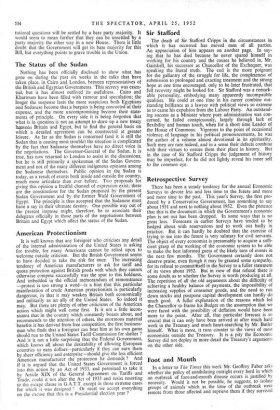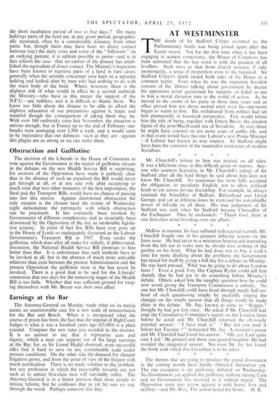Foot and Mouth
In a letter to The Times this week Mr. Geoffrey Faber asks whether the policy of annihilating outright every herd in which an outbreak of foot-and-mouth disease occurs is justified by necessity. Would it not be possible, he suggests, to isolate groups of animals which at the time of the outbreak were remote from those affected and reprieve them if they survived the short incubation period of two to five days ? On many holdings parts of the herd are, at any given period, geographic- ally separated, often by a considerable distance, from other parts, but, though there may have been no direct contact between (say) the dairy cows and some of the " followers " on an outlying pasture, it is seldom possible to prove—and is in fact seldom the case—that no carrier of the disease has estab- lished the equivalent of direct contact. The Ministry's inspectors have been known to reprieve parts of a herd in rare cases; generally when the animals concerned were kept on a separate holding and looked after by men who had nothing to do with the main body of the herd. Where, however, there is the slightest risk of what would in effect be a second outbreak the Ministry—who have in this matter the support of the N.F.U.—are ruthless; and it is difficult to blame them. We know too little about the disease to be able to afford the slightest relaxation of our precautions against it, tragic and wasteful though the consequences of taking them may be. With over 160 outbreaks since last November, the situation is serious enough; but in France up to the end of February out- breaks were averaging over 1,500 a week, and it would seem to be imperative that our defences—such as they are—against this plague are as strong as we can make them.



































 Previous page
Previous page